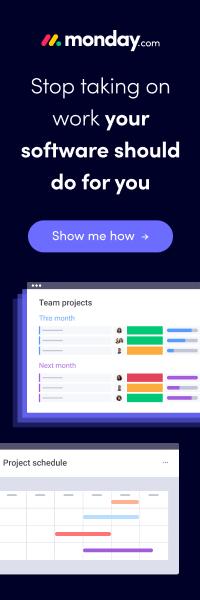“Give me six hours to chop down a tree and I will spend the first four sharpening the axe.” – Abraham Lincoln.
When you are organizing an event, there are many decisions to make when you find a venue for the event. But the one decision that is very important for an event is choosing a venue and location. This article will talk about what you should consider when finding a venue for an event.
Factors include location, guest list, capacity, services and facilities, layout and ambiance, acoustics, event date flexibility, contract & insurance, branding and marketing opportunities, special access, and additional services.
1. Location
The location is one of the most important factors when you find a venue for an event. You should consider the convenience of your attendees in terms of their location. If most people are from out of state, you need to consider a venue close to an airport or a major transportation hub and hotel accommodation for your guests. Hotel marketing software is helpful in this case.
If most people are local, then consider a venue for rent centrally located within the city. In either case, give them a mobile event app that has maps, driving directions, and parking/shuttle information. This will ensure your attendees will feel confident and assured of heading into the event.
Due to the Covid-19 pandemic, you will need to consider that attendees and staff of the venue for rent should be vacationed. The staff and attendees should wear masks. Moreover, you can easily choose several company retreat venues from here.
Tip: The top mobile event app is CrowdCompass helping you arrange events with 50 to 50,000 attendees. Click here to read more top mobile event apps in 2021.
2. Guest List
The first step in selecting a venue is to make a guest list. Add details like names, emails, and phone numbers. It is helpful when you send invitations, reminders, or updates about the event (if necessary). The number of visitors to your event will help you decide how much space you’ll need. Most venues will inquire about your guest list to plan how many people will come to the event.
3. Capacity
The capacity of the venue is another factor to consider. You don’t want a situation where people feel uncomfortable because of space. Your attendees should have enough breathing room. If there are too many guests, you might need to look for a larger venue or multiple venues. You should first make a guest list to determine which venue will be big enough to host your event.
Tip: Use an online event seating planner like CrowdCompass to help you visualize the space and how many people will fit in the venue.
4. Parking and Transportation
Parking is another important consideration when selecting a venue for rent. If the event is for many people, there might not be enough parking available at the venue. Also, it might be expensive to park there. You can bargain with a local parking garage to reserve a specific number of spots and charge that cost as part of a ticket package for people who intend to drive. Consider transportation options as well.
Is public transportation accessible? How close is the venue to major highways? Are there shuttle services available?
When picking a location, be sure to mention all the transportation alternatives, such as:
- Metro rail services
- Walking distance from hotels
- Availability of Uber, Lyft, Fasten, or Sidecar
Tip: Convince your attendees to download parking apps on their phones and use them to find cheap parking near your venue.
5. Cost
Try to negotiate with the owner or manager about lowering costs if planning an event that is not very profitable. Often, you will pay anywhere from $100 to upwards of $20,000 for a venue, depending on its capacity and location. Make sure the cost for the venue fits your budget.
Tip: Compare the cost of different venues and ask for discounts if you book multiple venues.
6. Services and Facilities
When looking for a venue, consider the services and amenities. Is there catering on-site? What kind of food do they serve? Are alcoholic beverages allowed? How about outside catering? If you want to bring in your caterer, make sure the venue allows it.
If renting or purchasing A/V equipment is expensive, you can save money if the outdoor event space has lighting, speakers, microphones, and video gear ready for you to use. The facility will include the equipment as part of a package deal.
If you’ve discovered a venue that offers a setup and cleanup crew, rejoice! If you don’t have access to these services, you’ll need to recruit your event team or find individuals willing to help.
Wi-Fi will be available at the best locations on the day of your event. The typical connection provided to all visitors may not be adequate to handle the traffic your guests generate. That is why it’s critical to talk about a dedicated Wi-Fi signal for your visitors with the venue host.
Tip: Ways to find volunteers read this. Search for venues with an attached hotel. It will allow you to use their Wi-Fi.
7. Layout and Ambiance
When selecting a venue for rent, you should also consider the layout and ambiance. How open is the space? Will it be able to accommodate your desired setup? Is there room for a stage or presentation area? Is there enough natural light available through the windows? If not, does the venue provide artificial lighting?
It’s an advantage when the venue has a layout that is easy to navigate. The location should have large open spaces for people to move around without feeling cramped.
Aesthetics is important, so consider the style of the venue and whether it matches your event theme. If not, you may need to decorate accordingly.
Tip: Ask to see pictures of past events hosted at the venue so you can get a feel of the layout and ambiance.
8. Acoustics
When selecting a venue, consider the noise levels. If you’re planning on having a band or DJ playing during your event, make sure the space can handle the sound.
The last thing you want is for people to be talking over each other because they can’t hear what’s going on. Poor acoustics can also distract speakers and keep people from paying attention. Just like acoustics, soundproofing is something you should consider.
If the venue has any open windows or doors, make sure you seal them to prevent noise pollution in the area where you’ll be hosting your event.
9. Event date flexibility
When you choose a venue, it’s critical to determine whether the date is flexible. Are there other events happening at the same time? How about before or after your event – will they interfere with yours?
If possible, find out how long of notice the location needs if you need to cancel for whatever reason. Make sure that the contract includes cancellation fees.
Tip: Make sure you choose a venue with event dates available for at least three months before or after your event time to ensure flexibility with your date of choice.
10. Contract and Insurance
We recommend an insurance policy to protect both the renter and the owner. Most contracts include clauses that indemnify the owner of any damages or losses that may happen because of your event. It means that the owner cannot sue you for any damages occurring because of your event.
Some event planners will refuse to work with you if you don’t have coverage, according to BizBash, a company that offers business-planning services.
Your general liability agent can assist you with purchasing insurance. Get in touch with the agent as soon as possible.
Tip: Always have an insurance policy in place and read through the contract thoroughly before signing
11. Branding and Marketing Opportunities
For a unique space to host an event that will help with branding and marketing opportunities, you’ll need to find a venue that can accommodate this.
Venues vary in this aspect.
Some have enormous walls perfect for displaying signage or sponsorships. Others may have private spaces available for hosting presentations or screenings.
Tip: Check with the venue to find out what opportunities exist for branding and marketing. When looking at these options, consider whether they fit within your budget and how they will affect the entire event experience of every attendee.
12. Special access
It is vital to ensure that your venue meets the Americans with Disabilities Act so Special-Need-Person can use it. Consider the ages of your visitors. If you’re expecting children, be sure there are changing tables in the restrooms. If an older crowd will attend your event, make sure the venue can accommodate them.
13. Additional services
When you choose a venue, be sure to ask about any additional services and equipment that might be available. Rooms with interactive whiteboards might be available. You may not use that service but it could end up being an important element of your event if you know it’s there.
They may also provide catering or entertainment options, such as DJs or music for dancing.
Inquire about these services in order to get a clear picture of what is available.
- Is there a kitchen that you and your team may use?
- Are outdoor seating options?
- Does the venue have collaboration with food vendors at the venue?
- Are there any bathrooms on-site?
- Is security available at the location? Is it really important?
- Do they have enough tables, chairs, tablecloths, silverware, and other items?
- Will a cleaning crew clean the venue before and after the event?
- Are there enough audio and video services?
Tip: Ask about any additional services that might be available and find out how much they will cost. This way, you can budget appropriately for your event.
Event organizers have many decisions to make, but one of the most crucial is selecting the right venue and location for their event. This decision will affect other factors like transportation options to catering choices. I’ve outlined some key points you need to consider when choosing an event venue or location, along with helpful tools that can help guide you through the process.
It’s time to invite guests after you’ve decided on a location. That’s when it’s time to check out the “Super Event” app. This app is ideal for all your events. It includes many useful features. Get started for free.
Make sure to read google reviews about the venue and food quality.
Be sure to review these considerations before making any final decisions so that your attendees are happy from start to finish! Read more of your blogs at Productivity Land.
Check these out:
















